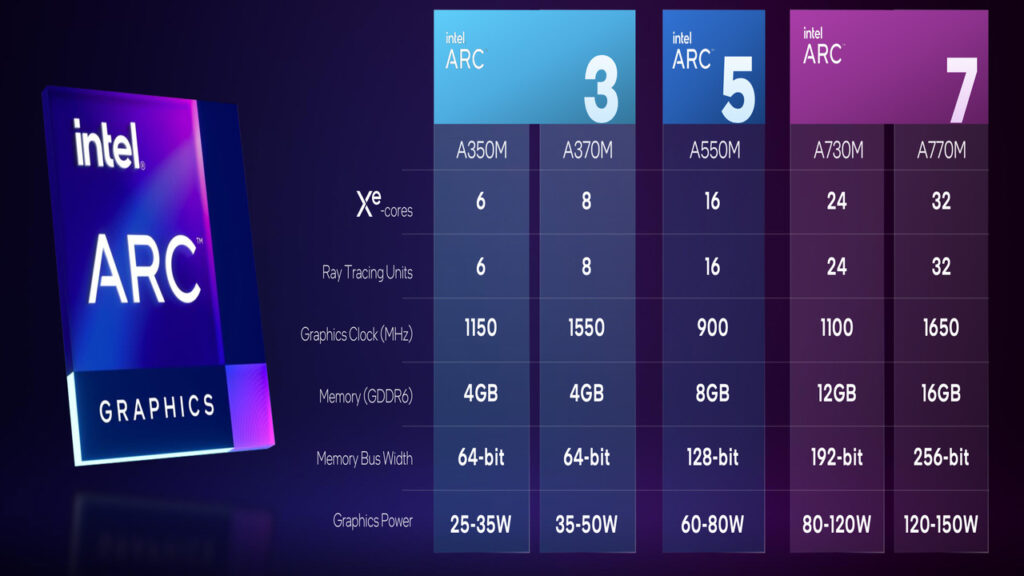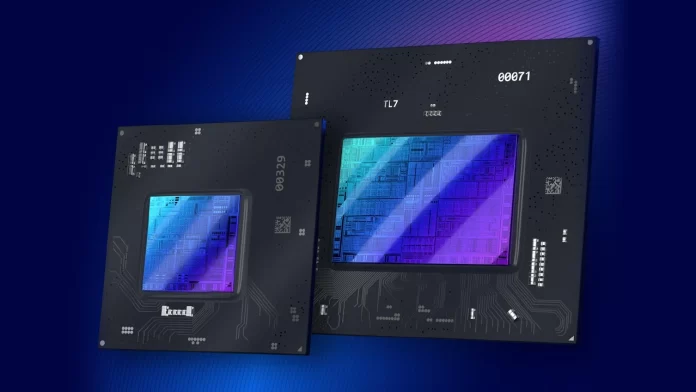After years of offering integrated GPUs, Intel is finally trying to break into the gaming GPU market. Despite the clear rivalry with AMD and NVIDIA, it seems that Intel is trying to provide cheaper options for regular PC users or more casual gamers that don’t care that much about performance.
Pricing and Release Dates
The full lineup hasn’t been announced, but we can discuss the models already coming out in October. The Arc A750 and Intel Arc A770 came out on October 12th, and the Arc A380 came out on August 16th. As far as pricing goes, this is what we know so far. Keep in mind, though, that these MSRPs might change once they release:
- A310 – lower than 100$ (needs further confirmation)
- A380 – 139$
- A580 – 220$
- A750 – 289$
- A770 8GB – 329$
- A770 16GB – 349$
Features
Intel’s variant of Super Sampling is called XeSS and works pretty similarly to NVIDIA’s DLSS or AMD’s FSR. This feature can boost your performance by rendering games at lower-than-native resolutions. Afterward, it uses data from every frame to make the final result resemble your native resolution, giving you more frames per second. As a bonus, it seems that XeSS will include its own anti-aliasing, replacing already existing options like TAA.
As far as Ray Tracing goes, Intel also offers support for it, but don’t expect excellent performance when compared to high-end GPUs from NVIDIA or AMD.
Content creators should be excited to hear that Intel has announced full support for AV1 encoding and decoding, which only NVIDIA currently offers with their RTX 40 series. Combined with Intel’s new Deep Link technology that helps your CPU and GPU share power and resources, this will lead to even better encoding performance. To top it all off, they also have the Arc Control software that is similar to GeForce Experience, allowing you to record, update drivers and tweak your game settings with just a few clicks.
Performance

Given that they are offering much lower price points when compared to the competition, Intel isn’t trying to compete with the new generation of GPUs from NVIDIA and AMD. Their flagship, the 16GB A770 is around 25% faster than the RTX 3060 and around 7% slower than the RTX 3070. Since it only costs 349$, those are some pretty good numbers.
It seems that all of Intel’s GPUs will offer better performance when using 2K or 4K resolutions, especially given how cheap they are.
Sadly it seems that the current series of GPUs from Intel has a slew of issues with drivers, leading to games crashing or simply not running, including Fortnite, Valorant, Spider-Man Remastered, and more. Certain testers have also encountered issues with certain monitors being unable to detect the GPU. These issues can be fixed, but given their nature, Intel has estimated that it might take some time before they can nail it.



